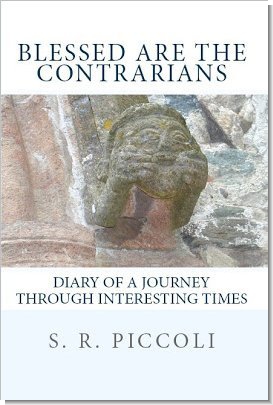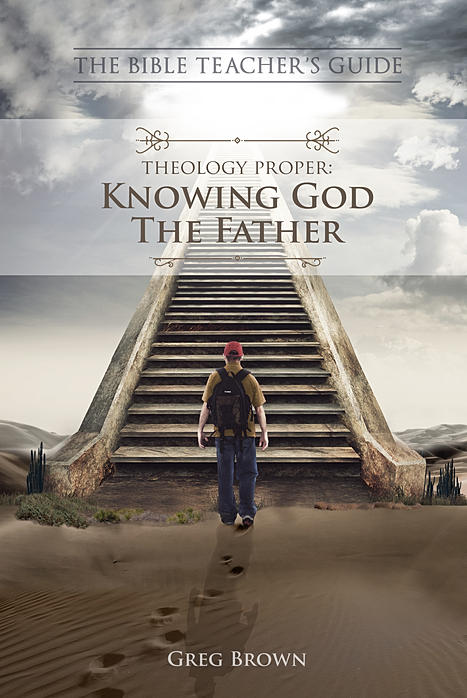If you are interested in meeting many complex and influential contrarians, this is the book for you.
In addition to those points, it seems to me (an American expat living in Europe) that Piccoli is well traveled, and tries to understand other people and cultures on a complex level in stead of making assumptions based on his own familiar background. He describes himself as, European by birth, American by philosophy.” This characteristic is a rare thing to find in an author, and I appreciate it very much.
I should also note that any intellectual Christian will find this book immensely refreshing. I think Piccoli accomplishes in his book what Alfred Edersheim meant when he wrote of the parable of the talents, “It refers general to all that a man has, wherewith to serve Christ; for, all that the Christian has — his time, money, opportunities, talents, or learning (and not only ‘the Word’), is Christ’s, and is entrusted to us, not for custody, but to trade withal for the absent Master — to further the progress of His Kingdom.”
September 11, 2015
Blessed Are the Reviewers
I appreciate all feedback, from anyone, any type, any time, but it is such a blessing to receive such a wonderful review… Thank you, Kristin Spencer!
They’re Rugby Boys, Don’t You Know? -- A Review
“The things described here are the grateful response of a Christian who has been rescued from a life of sin and death and reconciled to God for a life of hope and an eternal future in heaven.” That’s what the Author says in the biographical note (“Natalie’s Personal Story”) at the end of her book. In fact, Natalie Vellacott believed God’s promise that, ‘All who call on the name of the Lord will be saved’. And “God, by His grace, planted true faith in my heart and I determined to live a new life before Him,” as she herself recalls a few lines above.
Miss Vellacott, a former English Police Sergeant turned missionary to the Philippines, describes in her book, They’re Rugby Boys, Don’t You Know? how she unexpectedly encountered and fell in love with a group of street teenage boys addicted to what the locals call “rugby”—a solvent used for repairing shoes in the Philippines which also has the effect, if inhaled, to temporarily ease hunger and depression, and is known to be one of the major causes of addiction to teenagers and even children. The book chronicles some of Natalie’s ups and downs, victories and frustrations of dealing with the “rugby boys,” the many mistakes she made and the many lessons she’s learned along the way. To her each one of the boys was worth God’s love and hers as well. “My biggest piece of advice,” she writes, “is ‘start small.’ One of the smallest things we did which had the biggest impact was to learn the names of the boys and to use them. Whoever God calls you to help, I encourage you to treat them as individuals and demonstrate through this that their lives are important. Constantly remind them that it is God who loves them and that this is the reason for your concern. Don’t expect dramatic change straight away, but; be Patient, Persevere, and Pray.”
They’re Rugby Boys is an inspiring read, it’s thought-provoking, emotional, and uplifting. I am very happy to have read it.
This book is not for profit and all royalties will be paid directly to “Olongapo Christian Help and Hope” for the ongoing support of the ministry.
Miss Vellacott, a former English Police Sergeant turned missionary to the Philippines, describes in her book, They’re Rugby Boys, Don’t You Know? how she unexpectedly encountered and fell in love with a group of street teenage boys addicted to what the locals call “rugby”—a solvent used for repairing shoes in the Philippines which also has the effect, if inhaled, to temporarily ease hunger and depression, and is known to be one of the major causes of addiction to teenagers and even children. The book chronicles some of Natalie’s ups and downs, victories and frustrations of dealing with the “rugby boys,” the many mistakes she made and the many lessons she’s learned along the way. To her each one of the boys was worth God’s love and hers as well. “My biggest piece of advice,” she writes, “is ‘start small.’ One of the smallest things we did which had the biggest impact was to learn the names of the boys and to use them. Whoever God calls you to help, I encourage you to treat them as individuals and demonstrate through this that their lives are important. Constantly remind them that it is God who loves them and that this is the reason for your concern. Don’t expect dramatic change straight away, but; be Patient, Persevere, and Pray.”
They’re Rugby Boys is an inspiring read, it’s thought-provoking, emotional, and uplifting. I am very happy to have read it.
This book is not for profit and all royalties will be paid directly to “Olongapo Christian Help and Hope” for the ongoing support of the ministry.
September 4, 2015
Theology Proper: Knowing God the Father -- A Review
Greg Brown’s Bible Teacher’s Guide is a very useful resource for those believers who want to dig more deeply into the Word of God. Of course, as the Author warns in the Introduction of this valuable work, “before beginning we should consider the limitations of our study.” In fact, “no study of God can be considered comprehensive,” and this for three reasons: the first is a theoretical one (the limitation of the human mind), the second is a moral one (we each have been affected by the presence of sin), and the third is a “resource problem” (“God simply has not told us everything about himself. What he has told us we can know, but he has chosen in his sovereignty to not reveal everything”). That being said, there is so much to be explored, learned and understood...
After all, what is the highest good in life that anyone can pursue? What else but “the highest good out of which all good flows,” that is what in Latin is called summum bonum? As a matter of fact—and as this book wants to suggest—nothing on earth compares to the benefits of knowing God. One of those benefits being that if people don’t know God they can’t properly value human life:
Man is made in the image of God, and therefore, has value. I have value because in some way or another, even though I sin, I bear the image of God. Having God as my maker and having been created in his likeness, gives me innate value. Humanity has value. Depression often arises because of a lack of knowing God. One says, I am unattractive; I can’t do anything right; nobody loves me. These types of thoughts happen because we do not truly know our value as people made in the glory and image of God.
The Bible Teacher’s Guide: Theology Proper: Knowing God the Father is concise but thorough, scholarly enough for pastors but accessible to everyday Christians with thought-provoking and discussion-provoking questions. Pastor Gregory Brown has created a useful tool for studying and teaching God’s Word.
Subscribe to:
Posts (Atom)


